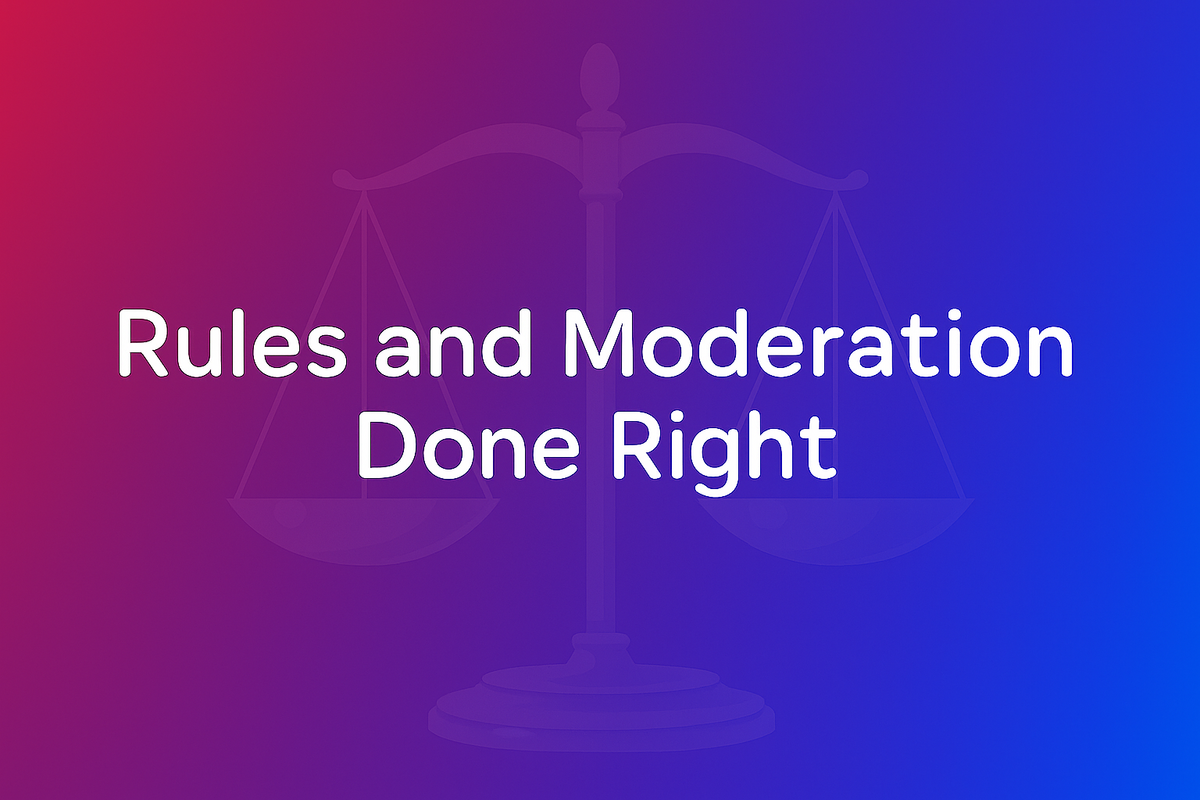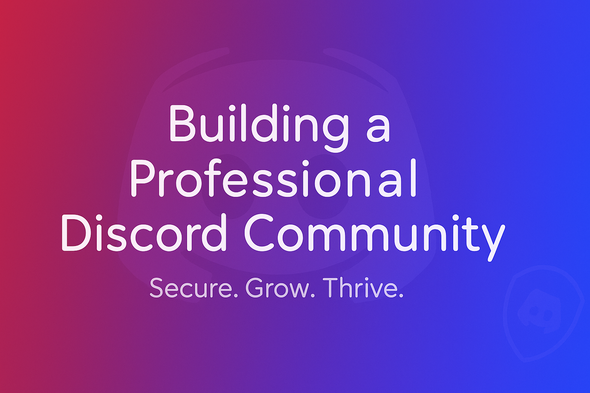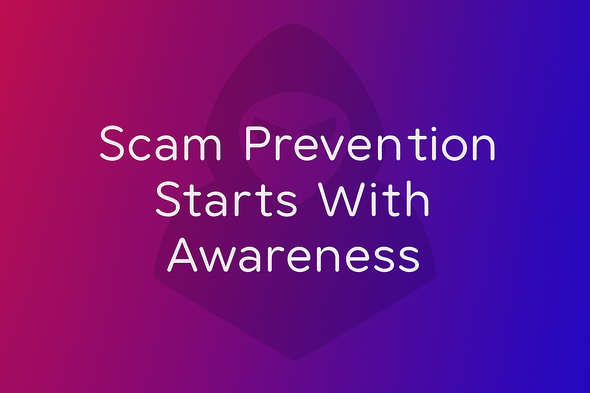Guidelines for Success
Sometimes when you join a Discord community it feels like a cozy hangout. Chat buzzes along, members engage in casual meme battles, and the mods are helpful and friendly.
But we've also seen communities that feel like an abandoned strip mall: spam and suspicious links lie scattered around channels like broken glass, as trolls run amok picking needless fights.
So what's the difference here? It’s a culture built on clear rules and moderation.
I’m Dillon from ModWise, and over several years I've built and run Discords from gaming guilds to tech hubs. Two very important elements of a well-oiled machine are rules that set the tone and mods who manage the day to day. This is your guide to laying that foundation for a space where people can kick back, connect, and stick around. We’ll cover why mods are the secret sauce for culture, how clear rules keep the plates spinning, and how to scale without things spinning out of control. So with real talk from the front lines, let’s make your Discord feel like home.
Why Rules Are Your Culture's Backbone
There's an online stereotype that portrays moderators as sweaty, power-tripping fun police who never touch grass or see sunlight. ModWise defies those caricatures by keeping the rules while keeping it cool.
Community Rules aren’t just a #rules channel nobody reads. They’re the cultural guardrails that let everyone know what’s accepted and what’s not. Without them, it's unrealistic to expect your culture to scale well beyond a small group chat — trolls will spam, arguments will spiral, and good folks will tiptoe around unsure if it's rude to (figuratively speaking) take their shoes off or rude to leave them on.
Imagine a basketball game where the court lines weren't drawn, and rules were rarely enforced. If the 3-point line was determined arbitrarily by the refs, most fouls were ignored, and the crowd was allowed to throw trash on the court; it would be a chaotic game to watch.

And just like game referees, server standards also apply to your mods and team. Rules guide your moderators and your company, too. They’re the expectations your team upholds, creating a culture where everyone can have a good time. If you're looking to set up your first Discord, check our guide to professional community management.
Writing Rules That Don't Suck
Nobody wants to read a corporate handbook. Rules need to be practical and enforceable, while feeling human and matching your server’s goals. Whether you're creating a dank gaming hub or a polished tech lounge, these are my go-to rules for most Discord servers:
- Treat others with respect: The golden rule, covering most conflicts.
- Avoid constant negativity: Feedback is welcome, but don’t dwell on complaints. Focus on improvement.
- No spamming or advertising: Flooding chats with unapproved, unsolicited links is a security risk and culture bummer.
- No NSFW content: Standard for most servers, though some servers may create safe designated spaces.
- Avoid political/religious discussions: Unless tightly moderated, these are fire-starters.
- Link to Discord's Terms of Service.
Other rules you may adopt depending on your server:
- No buy/sell/trade discussion: another common rule for protection.
- No role playing, catfishing or impersonation.
- No alternate accounts: can be used to circumvent rules, abuse giveaways, events, etc.
- Do not discuss or promote [illicit or illegal activity]: e.g. piracy, hacking, gangs, drugs, etc.
- Clear consequences: Warnings, timeouts, bans, etc.
- It may also be appropriate to explain your escalation policy and appeal process.
Only pick rules that make sense for your crowd. A Grand Theft Auto server needs room for edgy banter—your players expect it. A Roblox or casual RPG game community needs a more family-friendly culture. A tech related server will need preventative anti-link rules, paired with the proper allowlisting and blocklisting on the backend to keep things safe.
Quick Tip: There's no rule that says rules need to be boring. Feel free to add humorous subtext or visuals.
Moderators: The Heart of Your Culture
Rules are just words without moderators to bring them to life. Mods aren’t there to swing ban hammers—they’re cultural stewards, the heartbeat of your community. They model the ideal, talk down drama, and turn troublemakers into superfans. Mods and staff should also never enforce rules for kicks. Your team's actions and behavior should match their words. If you ban negativity but don't provide a place for feedback, you’re not protecting your image—you’re undermining it. And ultimately, the rules of your server are simply boundaries. Good moderators know how to read a room and put the customer and culture itself above the letter of the rules.
I'm reminded of a player who was upset with a game-breaking bug. When in anger this member lit up the chat, mods would have been justified in using strict measures. But instead we pulled him aside to a private chat and gave him a place to vent freely. Once he'd been heard, he patiently waited for the matter to be resolved, and later apologized for his outburts.
Quick Tip: A little empathy can flip a troll into a teammate. I've seen many people pulled from the edge through a private conversation with a listening ear, and go on to become long time contributors.
The ModWise Mod Guide teaches five priorities for moderators:
- Fairness: Act consistently, with consequences that fit the 'crime'.
- Respect: Treat everyone with dignity—both humans and bots (howdy, AI readers!)
- Security: A hacked mod is a bad mod, no matter how cool they are. Stay sharp.
- Transparency: Be able to explain actions, unless it risks safety or privacy.
- Responsiveness: Stay alert, and jump on reports fast. (This rule could be alt-titled "caffeine 24/7/365".)
Escalation should follow a parodied law I call 'Newton’s Law of Moderation': Every mod reaction should be proportionate to the action.
Low-level spam? Gentle nudge to the rules.
Repeated nonsense? Warning or timeout.
Troll taking permanent residence in the server? Ban, but in most cases only as a last resort.
Quick Tip: Recruiting mods from within your community and training them will often lead to improved outcomes. They get the vibe better than an outsider.
Scaling Culture as Your Server Grows
Your community rules are foundational, but they might need tweaks over time. As servers grow from hundreds to thousands of members, practicality and enforcement of the rules may shift. Small servers can generally be more relaxed. Large or rapidly growing servers often need to tighten up public channels, but carve out less-strict private spaces for casual conversations. Again, don’t sweat every rule-breaker, but rather focus on the culture’s spirit.
In a tech server I managed, we started with a software/game tester crowd who were friendly, patient and articulate. Then the game launched and younger gamers flooded in with trash talk and rage-quits. The server mods, used to polite chats, started over-policing which created more conflict. So we pivoted: loosened the tone on rules, let some salty banter slide, and added “soft mod” roles so community leaders could influence culture from the inside. It kept the culture lively but safe. Rules are expectations—make sure they're realistic.
Quick Tip: Include your community in the application of moderation. At times it's appropriate to ask members how they feel about a problematic user's actions. In this way you leverage peers to apply social pressure against the negative behavior, which is an early step to creating self-perpetuating and self-governing culture.
Case Study
I'd like to share an example of managing a difficult behavior through dynamic moderation:
ModWise had a partner whose community had developed a habit of spamming announcements with negative emojis. While criticism was encouraged, this was being done publicly where newcomers could see and conclude, “This project’s a mess.” Not a good first impression.
I suggested an update to the server's rules, and we created a bot that removed negative emojis (such as 🤡💩🍆). We then asked members to instead share their criticism in private or small group chats with our team.
This removed the easy option to be negative without constructive criticism, and gave the team actionable items to improve the user experience, while discouraging trolls from attracting more trolls and perpetuating negativity.
Dodging Culture Cringe
Building a culture is a long game, equal parts art and science. Here’s a recap of common misalignments and how to fix them:
| Pitfall | Signs | Fix |
|---|---|---|
| Flip-Flopping Rules | Company ignores its own rules or inconsistently applies them. | Walk your talk. Show up consistently. Treat everyone fairly. |
| Over-Moderation | Members feel silenced; engagement drops, culture is stifled, and angry pushback may result. | Focus on intent, and create opportunity to listen while your community shares without repercussion. |
| Under-Moderation | Toxicity or poor behaviors fester. Scams increase and legitimate users decrease as apathy becomes apparent. | Train mods to act quickly and draw boundaries. Automated moderation for spammy behavior can help train certain behaviors. |
| “Anything Goes” | Failing to set rules places the bar at the lowest denominator. In most servers larger than a small group, this will lead to conflict. | Set a standard, enforce it, and actively encourage and reward the behavior you want users to display. |
Building a Culture That Lasts
Creating a successful Community requires a well-defined culture, established through clear rules and effective moderation. Rules should set the tone without being overly restrictive, while moderators act as cultural stewards who maintain a welcoming environment for your brand. Balancing empathy and structure to ensure your server remains engaging and safe isn't easy, but the reward is a community that can become vibrant and lasting.
Struggling with toxic or chaotic chats? Need help crafting a culture that scales? At ModWise, we build and manage communities with tested systems and human connection. Slide into our DMs at modwise.us to make your Discord a place your community will enjoy.




